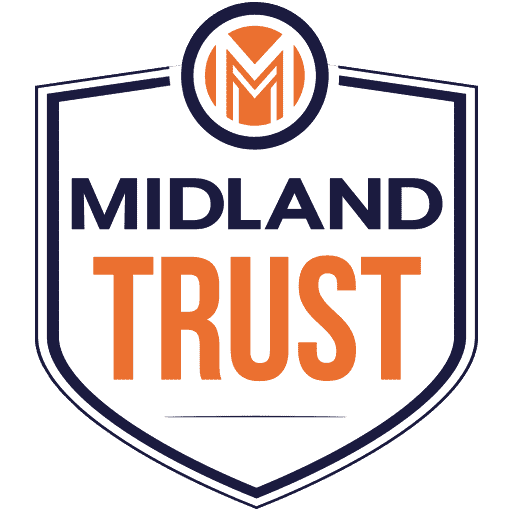Invest in Alternatives using your IRA
Self Directed Retirement Accounts Give You the Freedom to Invest
A self directed IRA (Individual Retirement Account) is defined by the type of investments owned within the plan. It is not a special retirement account. Any IRA can self-direct for greater diversification and control in an investment portfolio.
With a self directed investing account, you choose the investments. If you think outside the box, a self directed IRA is your ideal vehicle to control your retirement. Unlike conventional institutions, SDIRA custodians or trust companies do not limit investment decisions. Custodians allow investments in alternative assets such as real estate and private placements.
With self-direction, the account owner directs all investments and does all due diligence. As a self directed IRA custodian, Midland does not sell products nor offer financial advice. Our goal is to inspire investors to understand their investment choices. We want investors to take control of their retirement accounts. When you self-direct, all income and gains in an IRA are tax-deferred until you take a distribution. With a Roth IRA, all income and gains to the account are tax-free.
You have two options to get started:
- You can use your Traditional, SEP, or Roth IRA investment to invest with Tunnel. To start, you’ll want to have your IRA dollars in an account with our partner, Midland Trust. They are best-of-breed and earn high customer satisfaction scores for offering alternative IRA investment choices. See the steps below to begin.
- Or, if you have your own Self-Directed IRA, you can use that to direct funds to Tunnel Equity Partners and/or Tunnel Oil & Gas Funds yourself. To do this, you’ll want to reach out directly to our team at invest@tunnelequity.com to start the process. We are happy to walk through the steps with you.

Follow These Easy Steps to Get Started with Midland Trust
1. Open an account
Open a Midland account by completing our online application (typically takes around 10 minutes). See a video demo
2. Fund the account
Fund the account via:
- Transfer from an existing IRA
- Rollover (from an inactive plan like a 401K), or
- Contribution (annual limit of $6,000, $7,000 for those 50 and older)
3. Make the investment
Complete the appropriate form for the asset in which you wish to invest
Investing in Private Equity With a Self Directed Retirement Plan
Investing in private equity within an IRA has been an option since 1974. However, the vast majority of investors are not aware of this option. This unawareness is due to traditional retirement account custodians limiting investments to Wall Street stocks, bonds, and mutual funds. Midland allows investors to choose alternative assets such as real estate and private equity investments to build their wealth.
Who Can Invest in Private Equity With a Self Directed IRA?
Accredited investors can use their self directed IRAs and other retirement plans to invest in a private stock. This strategy allows investors to build tax-sheltered income in their accounts. Midland works closely with clients investing in private equity to facilitate the purchase in compliance with current rules and regulations. Our ability to do this maintains the account’s tax-advantaged status. It enables our clients the precious time to identify holdings they believe will increase their potential for building retirement wealth.
Why do I need to use Midland or another custodian?
How are the IRA investments titled?
What is Midland’s/Custodian’s role after funding the investment?
What should I watch out for?
For more information, please contact:
Adam Sypniewski
Director – Midland Trust Company
Phone: 312.767.6863
Email: adam@midlandtrust.com
Easy to Join. No Better Time to Invest. Let's Produce.
Register a user account on the Tunnel Investment Platform
BROWSE CURRENT OFFERINGS, SET UP YOUR ACCOUNT, & INVEST WHEN READY
TRACK THE PROGRESS AND PERFORMANCE OF YOUR INVESTMENT ON THE PLATFORM
Enter the Tunnel. Start Drilling Now.
Offerings available only to accredited investors.
According to SEC regulations, an accredited investor is someone with a net worth exceeding $1 million (excluding the value of the person’s residence) or someone who has earned an income of $200,000 (or $300,000 for a married couple) in each of the prior two years, someone who holds a Series 7, 65 or 82 license.